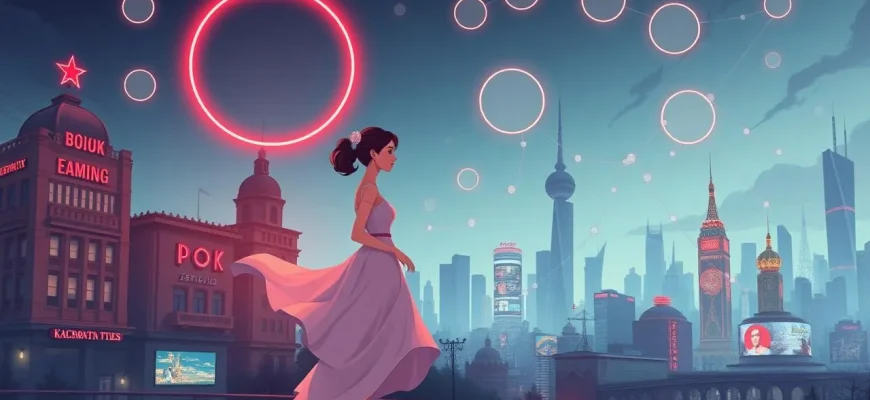Soviet cinema has long been celebrated for its ability to capture the nuances of human relationships, often reflecting the societal changes and cultural shifts of the time. This curated selection of ten Soviet films delves into the intricate dynamics between men and women, offering a window into the emotional landscapes of love, marriage, and personal growth. These films not only entertain but also provide a rich cultural context, making them valuable for anyone interested in understanding the Soviet perspective on interpersonal relationships.

The Irony of Fate, or Enjoy Your Bath! (1976)
Description: This beloved New Year's Eve comedy explores the theme of mistaken identity and the unexpected twists of fate that can lead to love. It's a perfect example of how Soviet cinema portrayed the complexities of relationships with humor and warmth.
Fact: The film is traditionally shown on Russian television every New Year's Eve, becoming a cultural phenomenon.
 30 Days Free
30 Days Free

Moscow Does Not Believe in Tears (1980)
Description: This film follows the lives of three women over three decades, showcasing the evolution of their relationships and personal growth. It's a poignant look at love, ambition, and the societal expectations of women.
Fact: It won the Academy Award for Best Foreign Language Film in
 30 Days Free
30 Days Free

A Cruel Romance (1984)
Description: Based on Alexander Ostrovsky's play, this film examines the passionate yet tumultuous relationship between a wealthy merchant's daughter and a young engineer, highlighting the societal constraints on love.
Fact: The film features stunning cinematography, capturing the opulence of 19th-century Russia.
 30 Days Free
30 Days Free

The Dawns Here Are Quiet (1972)
Description: While primarily a war film, it includes deep emotional connections between characters, exploring themes of love, sacrifice, and the impact of war on personal relationships.
Fact: The film was remade in 2015, showing its enduring popularity.
 30 Days Free
30 Days Free

Office Romance (1977)
Description: A comedic take on workplace dynamics and the blossoming romance between a boss and her subordinate, this film humorously dissects office politics and personal relationships.
Fact: It was one of the highest-grossing Soviet films of its time.
 30 Days Free
30 Days Free

Autumn Marathon (1979)
Description: This film portrays the life of a translator caught between his family and a new love interest, exploring themes of infidelity, duty, and the search for personal happiness.
Fact: The film was directed by Georgiy Daneliya, known for his satirical and humanistic approach.
 30 Days Free
30 Days Free

The Pokrovsky Gate (1982)
Description: Set in the 1950s, this film humorously depicts the lives of residents in a Moscow communal apartment, focusing on their romantic entanglements and the era's social dynamics.
Fact: It was one of the first Soviet films to openly discuss the Stalinist era.
 30 Days Free
30 Days Free

The Garage (1979)
Description: While primarily a satire on Soviet bureaucracy, the film also touches on personal relationships and the lengths people go to protect their interests, including romantic ones.
Fact: The film was directed by Eldar Ryazanov, known for his comedic insights into Soviet life.
 30 Days Free
30 Days Free

The Love of Three (1990)
Description: This film explores a love triangle, delving into the emotional complexities of relationships during the late Soviet period, reflecting on freedom, choice, and personal identity.
Fact: It was one of the last films produced during the Soviet era.
 30 Days Free
30 Days Free

The Station Master (1972)
Description: Based on a story by Alexander Pushkin, this film examines the tragic love story of a station master and his daughter, highlighting themes of duty, love, and the passage of time.
Fact: The film was part of a series adapting Pushkin's works for the screen.
 30 Days Free
30 Days Free









